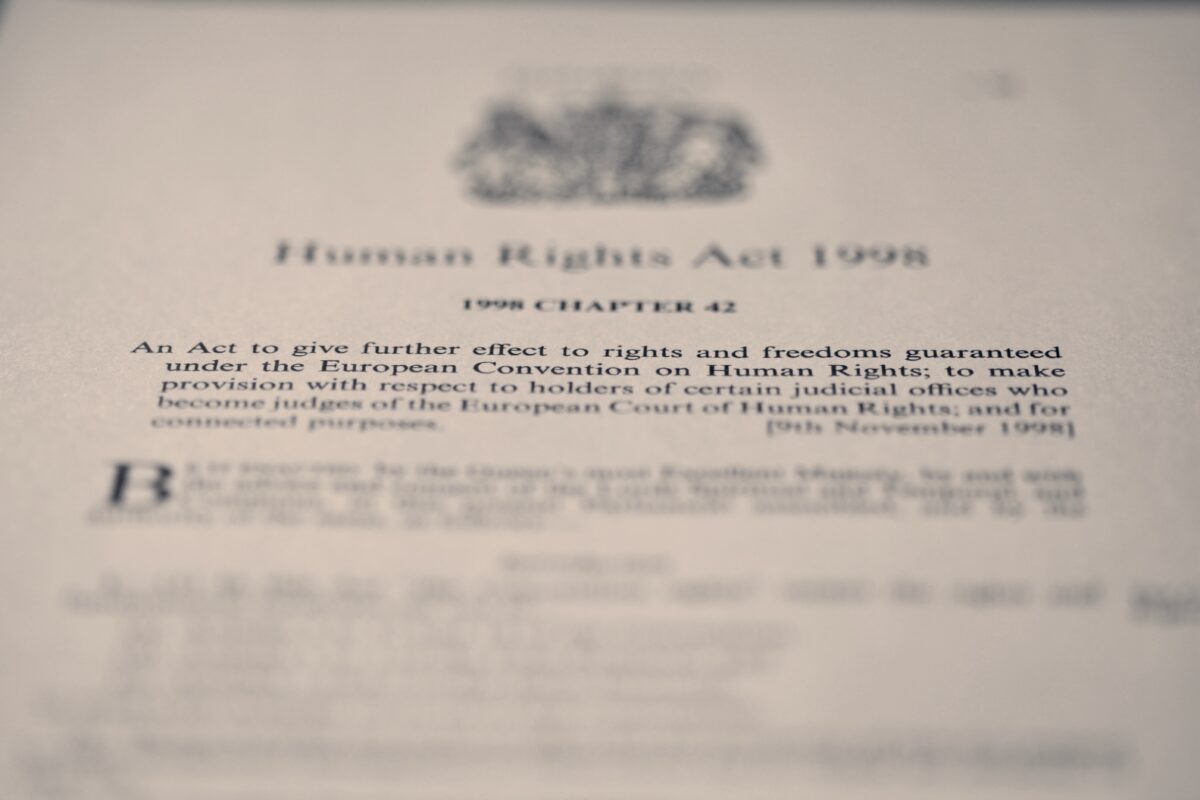Building on our previous community consultation into the UK government’s planned reforms to data laws in the UK – we wanted to bring people together to tackle another weighty topic – that of proposals to reform the Human Rights Act (HRA).
As with the previous consultation, the proposals in the – Human Rights Act Reform: A Modern Bill of Rights – are far-reaching. In this case, they appear to come from concerns about parliamentary sovereignty, particularly given our changing relationship with Europe, along with questions about how human rights law may be applied by UK courts.
Much of what we are concerned with relates to the European Convention on Human Rights (ECHR) ‘Article 8’ – Right to respect for private and family life – and so particularly laws like the Data Protection Act (DPA) and the General Data Protection Regulation (GDPR). There is also new, related policy and legislation being developed, particularly from Data: A New Direction and the public sector algorithmic transparency consultation.
Consultation responses are founded on good evidence, and with that in mind, you may wish to note Appendix 3 – the overview of potential impacts – which does not contain a full impact assessment, but does state:
“The existing Human Rights Act offers protection to individuals in the UK. The proposals in this consultation will potentially have an impact on all individuals who are within the UK”.
Below are some key issues we took from the people who joined us at the event:
- Current human rights law is foundational to many other pieces of legislation, is very clear and succinct, and today in the UK, human rights are considered universal.
- The UK is seen as a strong champion of human rights, as evidenced by the depth of the mechanisms and processes that deliver and oversee them – explored in papers such as ‘Domestic Implementation of Human Rights Judgments in Europe: Legal Infrastructure and Government Effectiveness Matter’ from the European Journal of International Law.
- One attendee pointed out that the government’s previous Independent Human Rights Act Review found that the UK’s current approach appears to work – the document itself says “the vast majority of submissions received by IHRAR spoke strongly in support of the HRA”.
- Some of the framing of the consultation appears pejorative and partisan, such as: “We will overhaul the Human Rights Act passed by the then Labour government in 1998 and restore common sense to the application of human rights in the UK”.
- Data and digital rights are human rights – indeed, the ECHR deals with them separately from issues like privacy – yet the consultation lacks discussion of these.
- Data protection law is built upon the ECHR, so if we lose or amend the Human Rights Act, one attendee suggested that data protection may end up in a legal vacuum and this may mean that data protection laws can be amended at will.
- Given the foundation that the HRA currently provides for other legislation, Data: A New Direction and the public sector algorithmic transparency consultations do not appear to have come in a logical order.
- The language relating to qualification of rights, who is and isn’t deserving of them, is unclear and this may impact directly on the way that data is handled, especially regarding foreign data subjects.
- Using ‘edge cases’ related particularly to immigration as evidence masks the wide protections afforded to most people under current human rights law, as the foundation of many other legal protections.
- Raising the burden of proof for human rights cases, from simply being considered a victim, to having suffered ‘significant disadvantage’, may reduce access to justice – for example, one attendee highlighted that GDPR ensures that there is no financial barrier in terms of people accessing their data.
- It’s important to help people understand how data laws and underlying human rights law is relevant to their day-to-day lives – made real by one of our attendees who highlighted cases like Uber drivers fighting to have the company release data it holds about them.
- It was unclear how the proposed changes in the legislation would affect and protect different categories of people, especially when a ‘harm’ may be small against an individual, but across a category of people, may have large and systemic impact. This felt particularly important when considering data.
- The consultation document states that ethnic minorities, children and men will be disproportionately impacted by indirect discrimination from changes to the HRA, but the underlying evidence for this isn’t stated.
- The lack of any meaningful impact assessment, especially when the HRA is a foundational piece of legislation that underpins many of the protections that we take for granted, is concerning.
Tips for responding to a consultation:
- Respond to the questions presented and provide evidence to back up your responses
- Respond with what you agree with and not just anything you are challenging or disagree with
- It is worth focussing on the few questions that you think are most critical and to really provide good evidence for your response, as opposed to trying to answer everything in a small way.
The deadline for responses is 8 March 2022.
Further reading
British Institute of Human Rights – ‘Human Rights Act Reform – Question-by-question Guide’
British Institute of Human Rights – videos
European Journal of International Law – ‘Domestic Implementation of Human Rights Judgments in Europe: Legal Infrastructure and Government Effectiveness Matter‘
Northern UK Human Rights Network – event last week
UK government – consultation principles
UK government – Independent Human Rights Act Review

